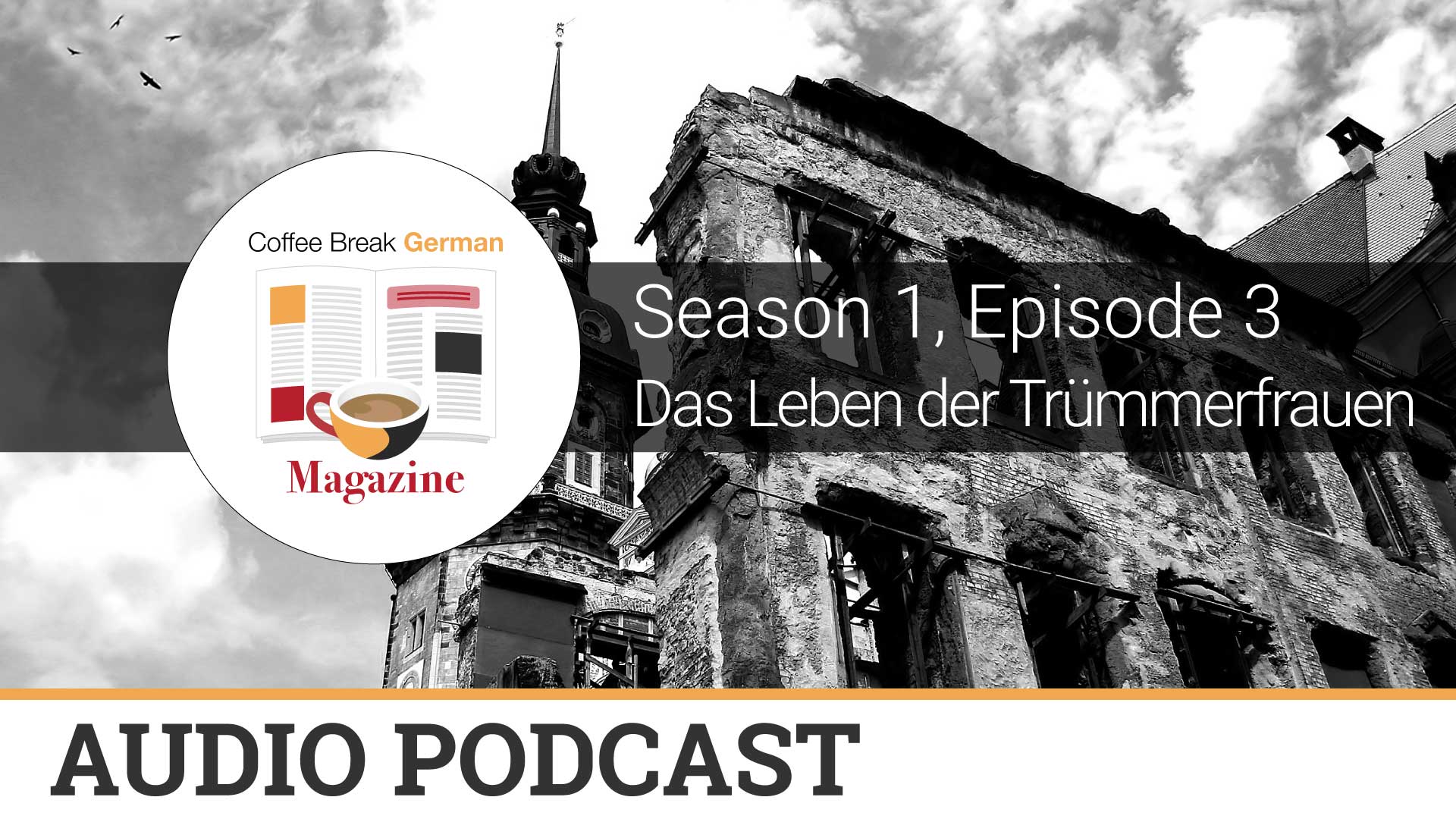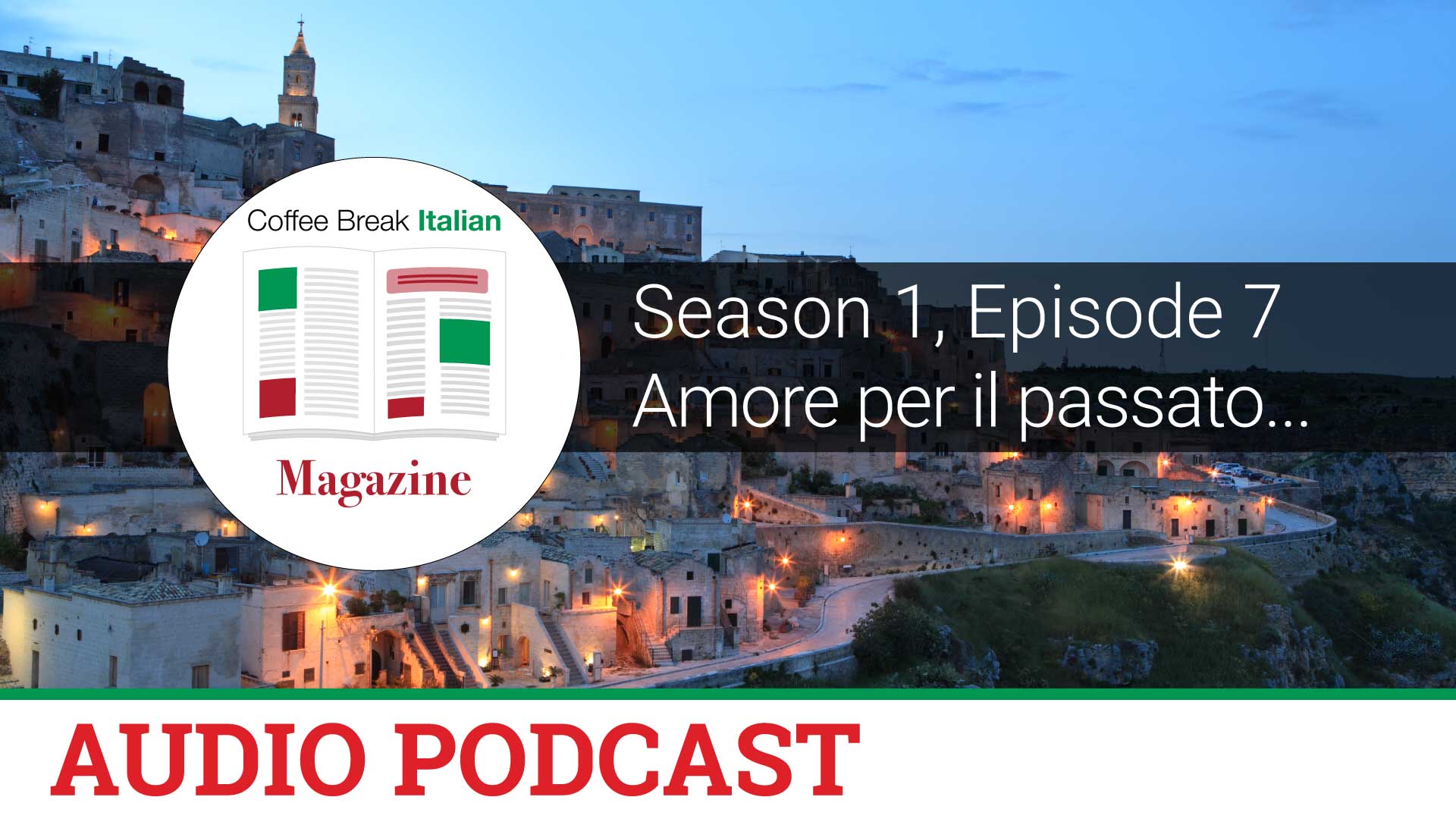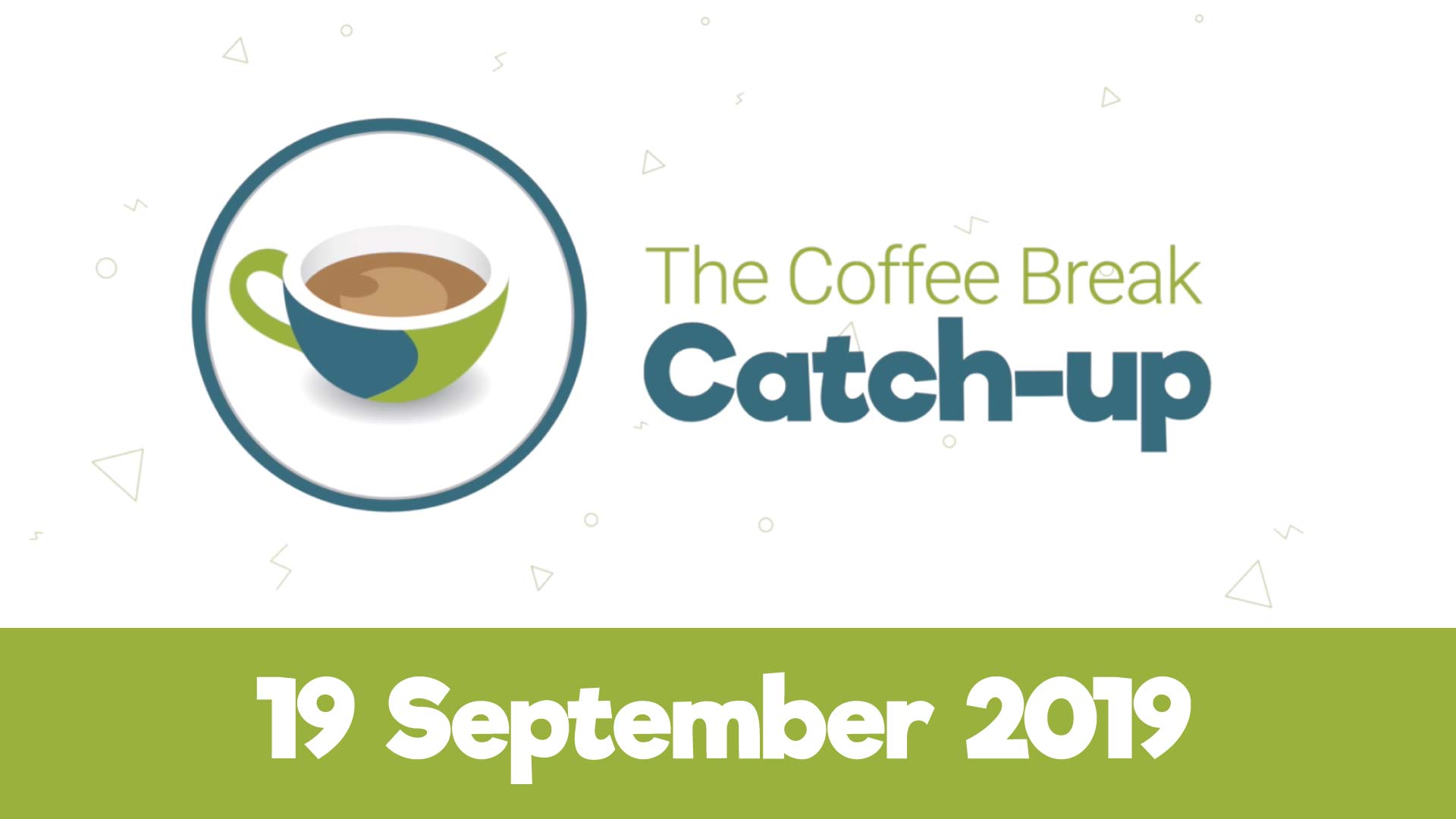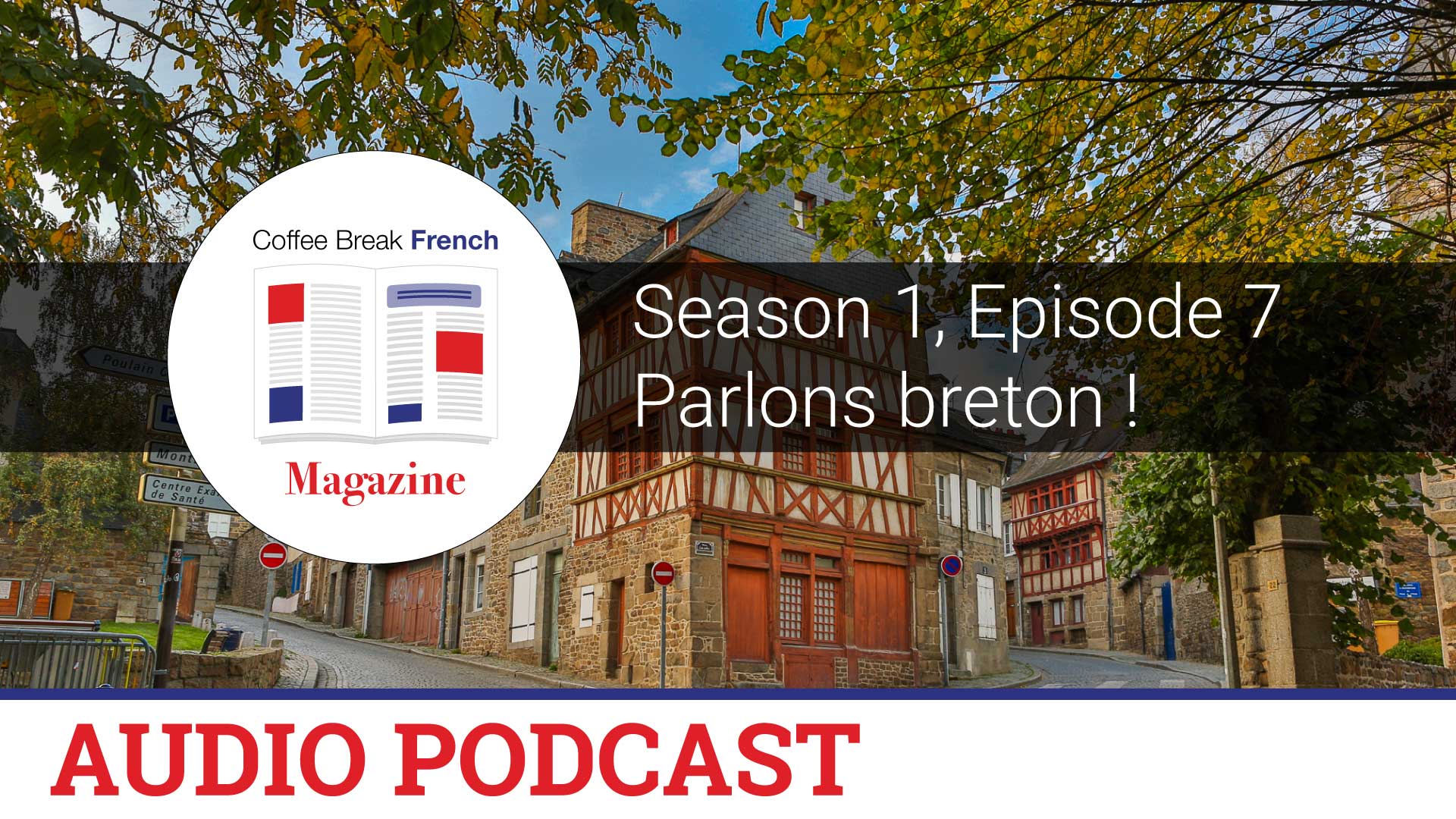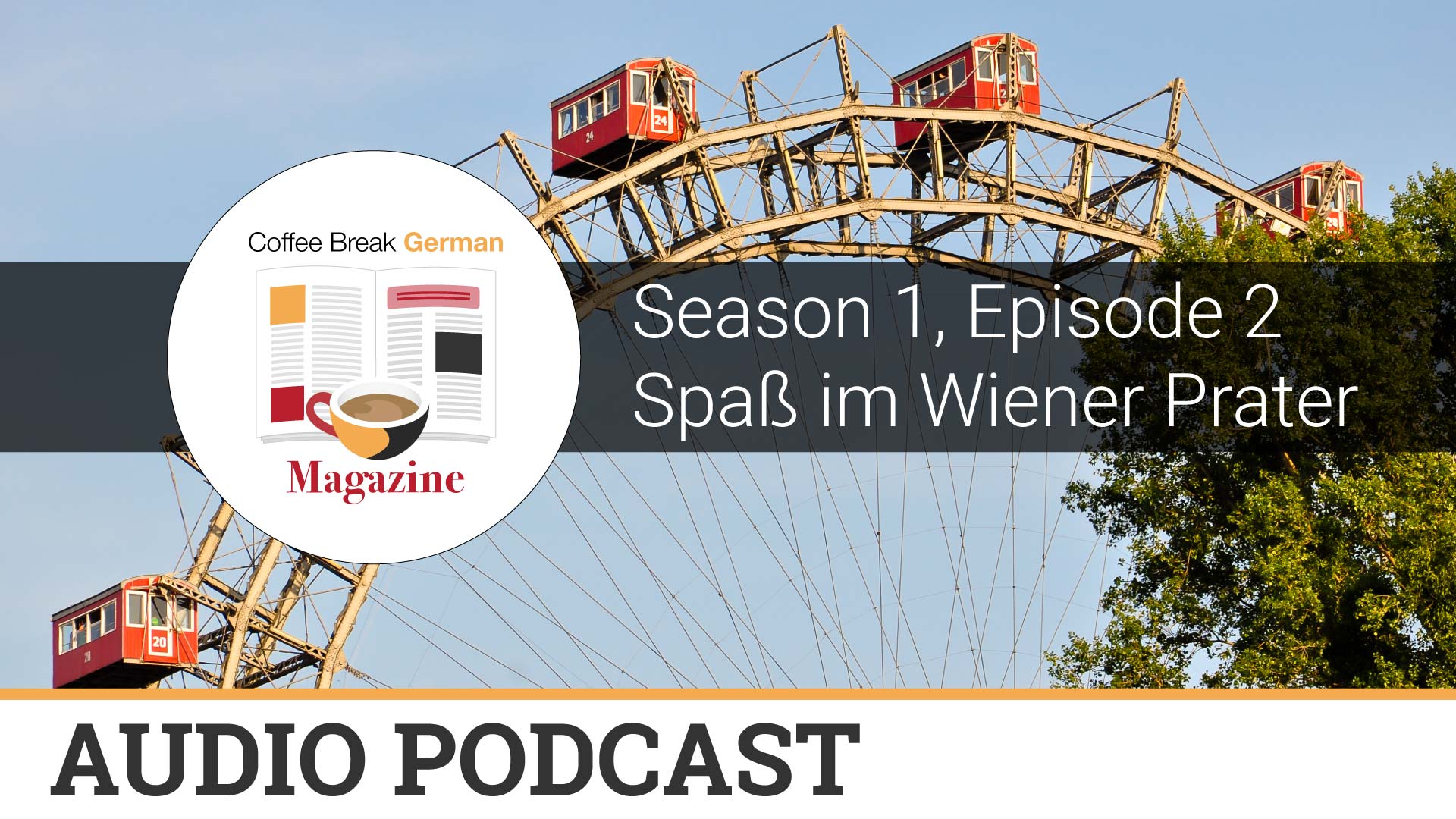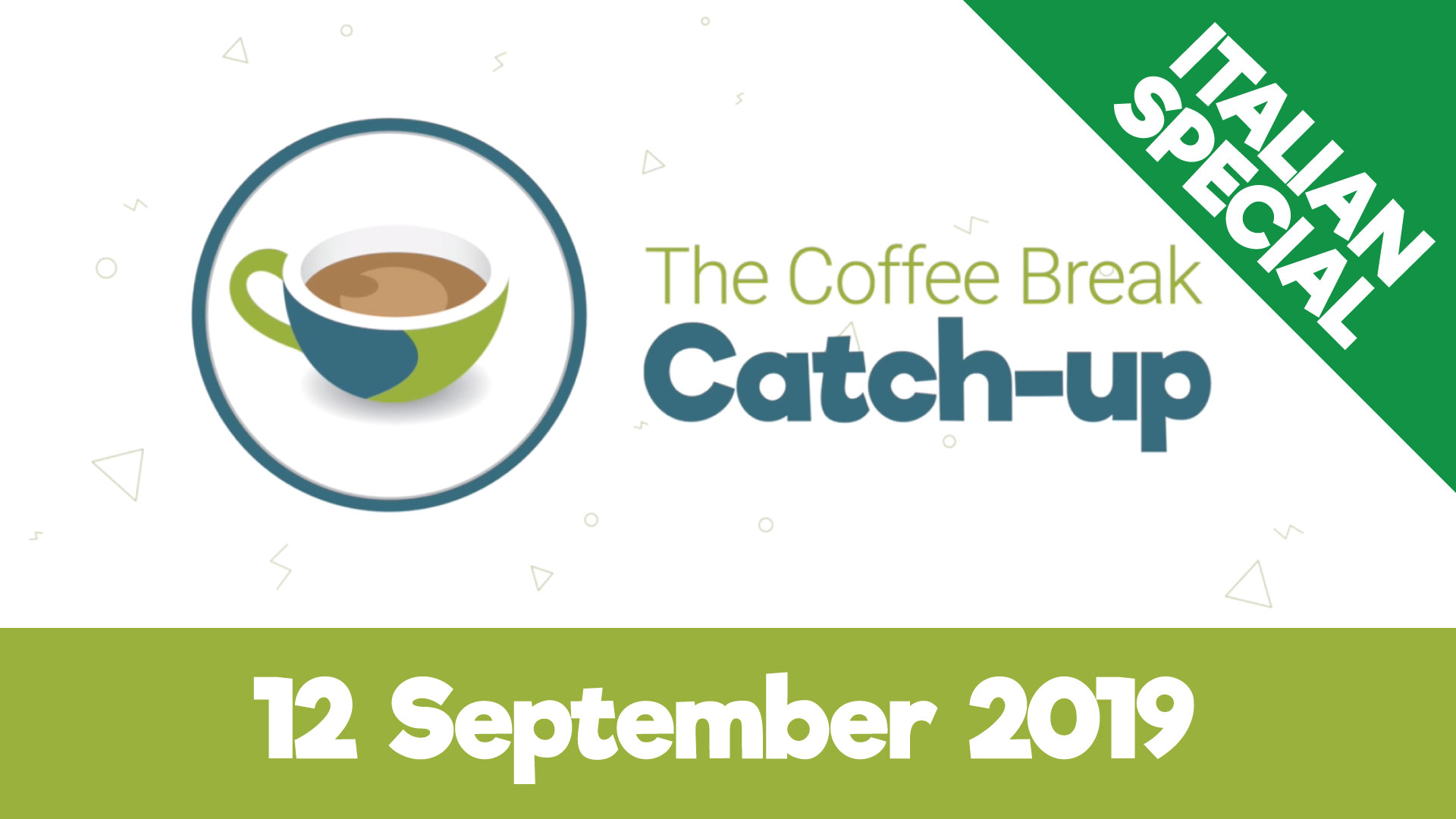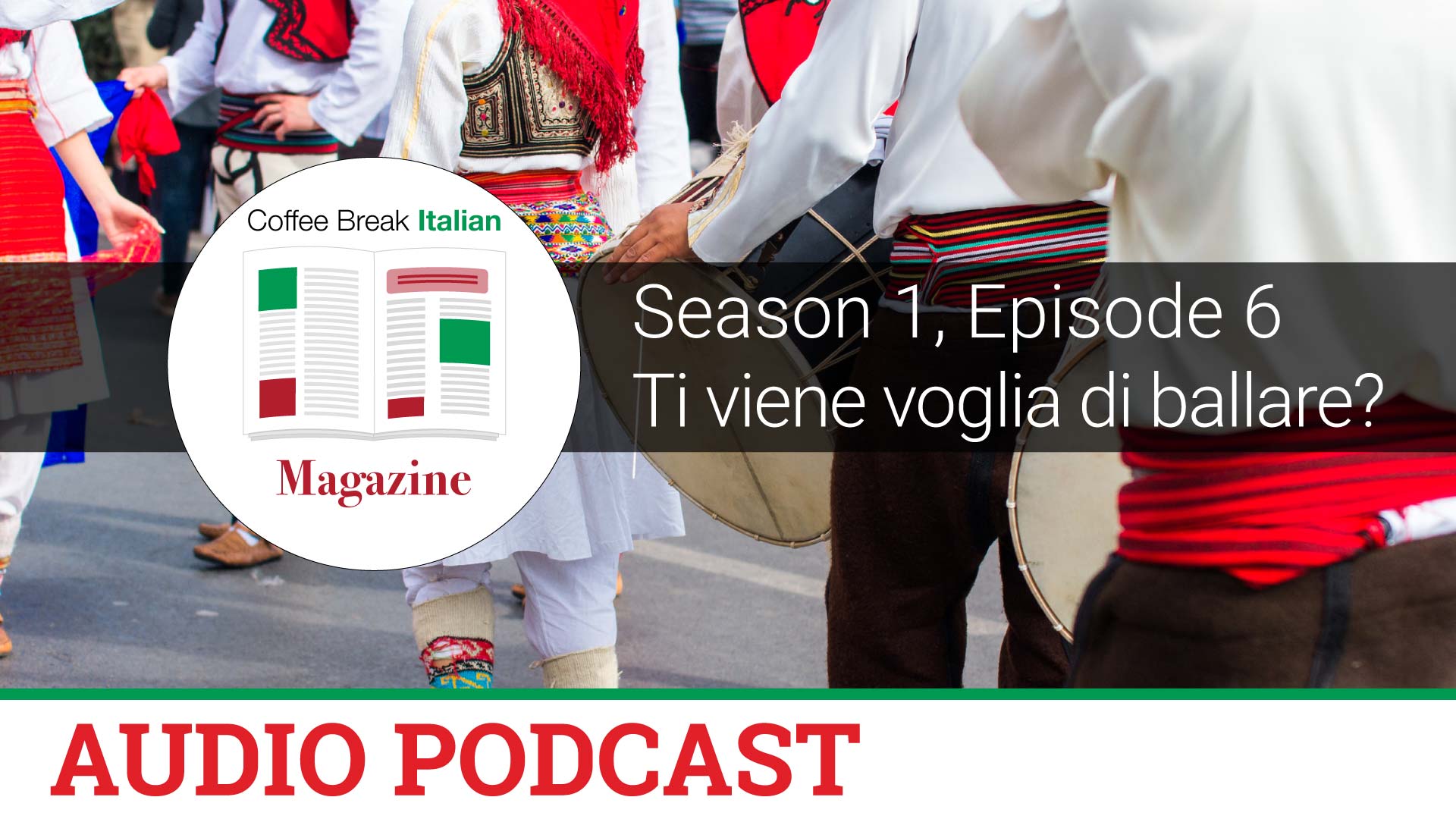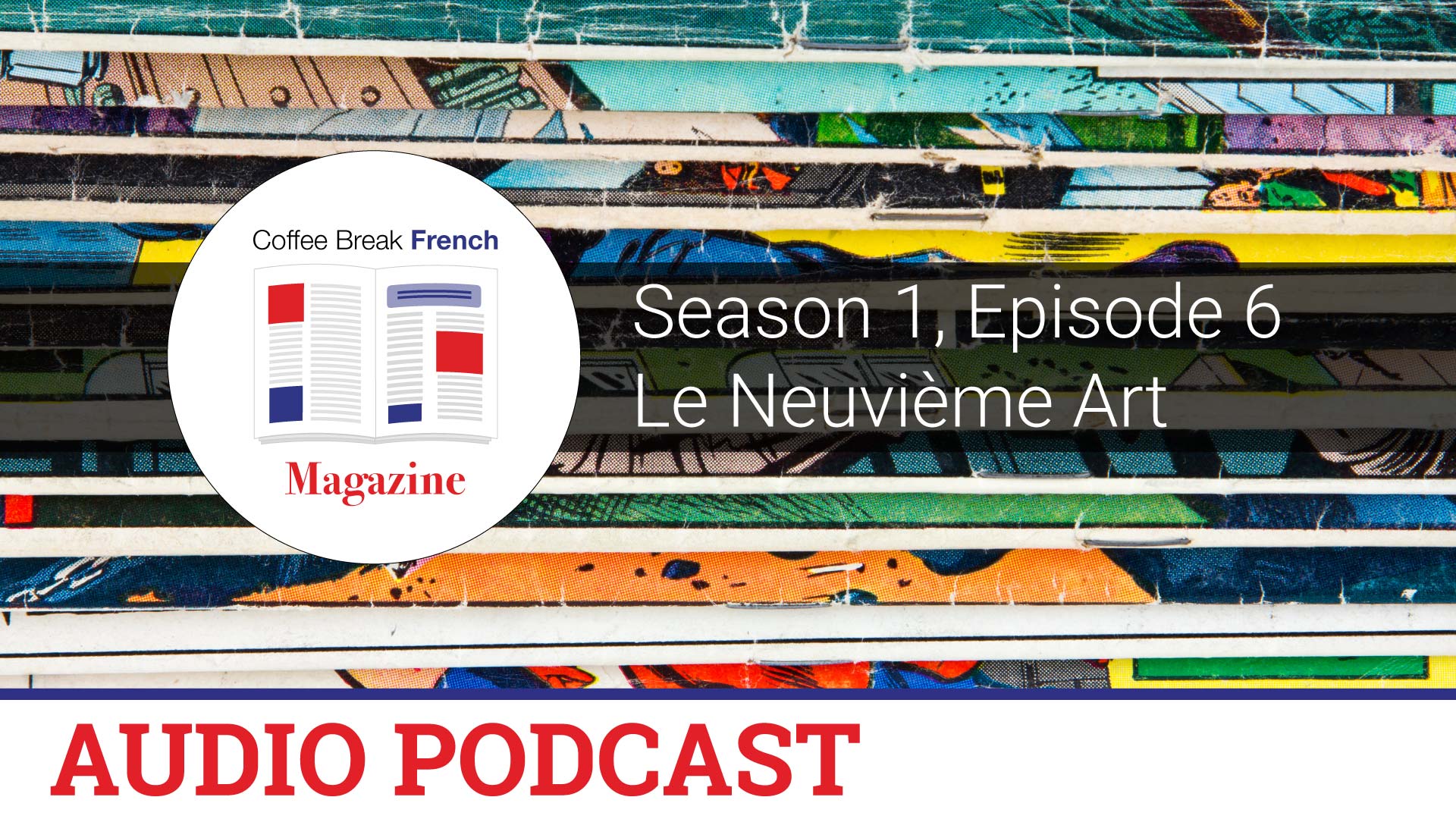Glitz and glamour are the name of the game in this episode of the Coffee Break French Magazine as we head to the south of France for the Cannes Film Festival. In our text we’ll find out more about the interesting origins of this key event in the international cinematic calendar, and we’ll also tackle listener Sophie’s question about ce,ceci, cela and ça, and Susie shares a quote from Jean Cocteau about the French Riviera.
Month: September 2019
CBG Mag 1.03 | Das Leben der Trümmerfrauen
Following the events of World War 2, the monumental task of clearing and reconstructing towns and cities fell to the Trümmerfrauen, literally “rubble women”. In this episode of the Coffee Break German Magazine we’ll look at this fascinating period of German history. In the other segments of the show, Andrea answers listener Maddie’s question about compound words, and Olivera introduces an interesting idiomatic expression in the Sahnehäubchen.
TFT: La vuelta al mundo
¡Hola! This Tuesday, we’re listening to La vuelta al mundo by Puerto Rican group, Calle 13. Their music is a fusion of a number of styles, notably hip-hop and Puerto Rican reggaeton. They have had huge success within Latin America and further afield, holding the record for winning the most Latin Grammy Awards.
While you’re listening to La vuelta al mundo, think about how you would translate the repeated expression in the chorus, “dar la vuelta al mundo”. If you think you know, let us know in the comments!
You can find the lyrics by clicking here or if you’d like to hear the song played more slowly, we recommend watching the YouTube video below and selecting a slower playback speed by clicking on the settings symbol.
We hope you enjoy this song and check out the rest of our multilingual Spotify and YouTube playlists below.
CBI Mag 1.07 | Amore per il passato…
… e tanta voglia di futuro. The city of Matera in the Basilicata region of Italy celebrates an incredibly rich heritage, with the word famous Sassi, cave dwellings carved into the mountainside, and looks to the future with the redevelopment of these caves into museums and hotels. In 2019, together with the Bulgarian city of Plovdiv, Matera has been named European Capital of Culture. In this episode of the Coffee Break Italian Magazine Francesca tells us more about Matera, and there’s a question from a listener about the difference between po‘, poco and più.
The Coffee Break Catch-Up: 19 September 2019
It’s time for another Coffee Break Catch-up in which we update you on our latest podcast episodes, blog articles and videos. This week we’re also featuring a discussion on the topic of motivation in language learning, with some contributions from the whole Coffee Break team!
In this edition:
- updates on the latest episodes of the Coffee Break French, German and Italian Magazines;
- Tune for Tuesday and Question of the week;
- registration is live for the Coffee Break French and Spanish Masterclass courses;
- news of a work experience opportunity for Scottish school students.
If you’d like to access all the links for this episode and practise your reading skills in the language you’re learning, click here to sign up for our weekly language and culture newsletter.
TFT: La chanson de Prévert
Bonjour tout le monde ! This week’s Tune for Tuesday comes from French singer-songwriter Serge Gainsbourg. Often considered one of the greats of French popular music, he wrote songs influenced by a variety of genres to create a distinctive style. This week we’re listening to his song La chanson de Prévert, inspired by Jacques Prévert’s poem, Les feuilles mortes. There have been many musical interpretations of this poem, in French and in English, translating as Autumn Leaves.
Have a listen to Gainsbourg’s version this week and listen out for when he sings “les feuilles mortes” – it’s good practice hearing how to pronounce that tricky word for “leaves”, and a good example to remember how the sound and spelling of mort change when it agrees with a feminine noun!
To find the lyrics to the song online, click here, or if you’d like to hear the song played more slowly, we recommend watching the YouTube video below and selecting a slower playback speed by clicking on the settings symbol.
Have you heard any other songs by Serge Gainsbourg? Or any other poems by Jacques Prévert? Share some of your favourites in the comments below!
CBF Mag 1.07 | Parlons breton !
We’re heading to north-western France for this episode of the Coffee Break French Magazine to discover more about the Breton language and culture. As ever, you’ll be able to listen to Susie’s text and Mark and Pierre-Benoît are on hand to discuss the text. There’s a question from listener Tomás who wants to know when to use merci de and merci pour, and in our final section we look at two idiomatic expressions which are linked to the word beurre, specifically compter pour du beurre and vouloir le beurre et l’argent du beurre which is the French equivalent of “to have your cake and eat it”.
CBG Mag 1.02 | Spaß im Wiener Prater
In episode 2 of the Coffee Break German we’re heading to the Austrian capital, Vienna, where the world-famous Wiener Prater is to be found. This former hunting ground has become the hub of entertainment for Viennese families. As usual Mark and Andrea will be discussing the language featured in our text, and there’s also a question from listener Rena who is looking for advice on how to help her daughter learn German.
The Coffee Break Catch-Up: Italian Special – 12 September 2019
Join Coffee Break Founder and CEO Mark and Coffee Break Italian host Francesca for a special edition of the Coffee Break Catch-Up. In addition to updates on the latest podcast episodes and videos, Francesca answers listeners’ questions live on the show.
In this edition:
- our brand new video studio;
- updates on our latest Coffee Break Magazine episodes;
- news of our latest One Minute Language course available on YouTube;
- the return of the Coffee Break French Masterclass;
- cultural news from around the world;
- live Q&A with Francesca for Italian learners.
If you’d like to access all the links for this episode and practise your reading skills in the language you’re learning, click here to sign up for our weekly language and culture newsletter.
TFT: La danza
Ciao a tutti! We couldn’t possibly talk about Italian music without mentioning Italian opera. We’re sure that many of you are familiar with Luciano Pavarotti, an Italian operatic tenor (the term used to describe a higher male voice). He was one of the most successful operatic singers of all time and was particularly well-known for his performances in bel canto opera roles (Italian for “beautiful singing”, bel canto is the term used to describe this Italianate style of operatic singing).
Have a listen to Pavarotti’s performance of La danza, written by Italian composer, Rossini, in 1835. This energetic song is fun to listen to and the music perfectly describes what the title suggests – a dance!
For Coffee Break Italian learners, don’t be disheartened if you struggle to understand the fast lyrics at first. To help you, we recommend reading the lyrics as you listen, which you can find by clicking here. Or if you’d like to hear the song played more slowly, we recommend watching the YouTube video below and selecting a slower playback speed by clicking on the settings symbol.
We’d love to hear what you think of La danza in the comments! To discover more songs of a range of genres and from many different countries, scroll down to find our full Spotify and YouTube playlists.
CBI Mag 1.06 | Ti viene voglia di ballare?
It’s time for a new episode of the Coffee Break Italian Magazine and in this episode Francesca and Mark talk about their summer breaks and where they travelled to. The text for this episode focuses on the traditional Italian dance, la Tarantella, and there’s an interesting question from listener Gianna on the difference between restare and rimanere.
The Coffee Break Catch-up: 5 September 2019
It’s time for another Coffee Break Catch-up in which we update you on our latest podcast episodes, blog articles and videos. This week we’re also featuring a discussion on how to learn two languages at the same time and the members of the Coffee Break team shares their wisdom!
In this edition:
- updates on the latest episodes of the Coffee Break French and German Magazines;
- news of our latest One Minute Language courses available on our YouTube channel;
- Tune for Tuesday and Question of the week;
- the forthcoming Coffee Break French and Spanish Masterclass courses.
If you’d like to access all the links for this episode and practise your reading skills in the language you’re learning, click here to sign up for our weekly language and culture newsletter.
TFT: Für Frauen ist das kein Problem
Hallo! Wie geht’s? This week, Max Raabe’s Tune for Tuesday is going to help us with our German! He wrote the song Für Frauen ist das kein Problem, and many others, to perform with his Berlin-based Palast Orchester, which he founded with fellow students while studying opera in Berlin. Together, Raabe and Palast Orchester perform covers of cabaret songs from the Weimar period as well as original songs that merge 1920s and 30s melodies with modern lyrics. Luckily for us, he also sings very clearly! So have a listen to this song and let us know what you think in the comments.
To help you understand the German, we recommend reading the lyrics as you listen or, if you’d like to hear the song played more slowly, you can watch the YouTube video below and select a slower playback speed by clicking on the settings symbol.
Remember, whether you’re learning French, Spanish, German, Italian or another language, you can continue your international music listening with our full Spotify and YouTube playlists below.
CBF Mag 1.06 | Le Neuvième Art
In this episode of the Coffee Break French Magazine we’re talking “bande dessinées”, comic books. The French-speaking world has produced many famous bande dessinée including Tintin, the Smurfs and Astérix, and they can be a great way to expand your vocabulary and experience.a different reading format. Pierre-Benoît is on hand to explain everything in the text. Mark answers a listener’s question about the use of on and nous, and Susie shares some jeux de mots.
In each episode of this 10-lesson season for intermediate learners, you can build your vocabulary, increase your understanding of grammar and learn to use the French language in a more natural way. This series is aimed at learners who have completed at least Season 1 and Season 2 of Coffee Break French.


